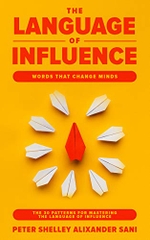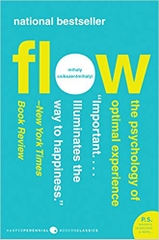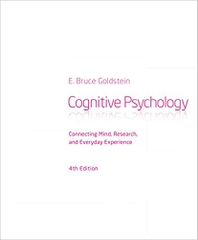-
-
-
Tổng tiền thanh toán:
-
-
Thông tin
-
Tìm sách theo yêu cầu
Meet Emily and Paul: The parents of two young children, Emily is the newly promoted VP of marketing at a large corporation while Paul works from home or from clients' offices as an independent IT consultant. Their lives, like all of ours, are filled with a bewildering blizzard of emails, phone calls, yet more emails, meetings, projects, proposals, and plans. Just staying ahead of the storm has become a seemingly insurmountable task.
In this book, we travel inside Emily and Paul's brains as they attempt to sort the vast quantities of information they're presented with, figure out how to prioritize it, organize it and act on it. Fortunately for Emily and Paul, they're in good hands: David Rock knows how the brain works-and more specifically, how it works in a work setting. Rock shows how it's possible for Emily and Paul, and thus the reader, not only to survive in today's overwhelming work environment but succeed in it-and still feel energized and accomplished at the end of the day.
YOUR BRAIN AT WORK explores issues such as:
- why our brains feel so taxed, and how to maximize our mental resources
- why it's so hard to focus, and how to better manage distractions
- how to maximize your chance of finding insights that can solve seemingly insurmountable problems
- how to keep your cool in any situation, so that you can make the best decisions possible
- how to collaborate more effectively with others
- why providing feedback is so difficult, and how to make it easier
- how to be more effective at changing other people's behavior
Product Details
- Hardcover: 304 pages
- Publisher: HarperBusiness; 1st Ed. edition (October 6, 2009)
- Language: English
- ISBN-10: 0061771295
- ISBN-13: 978-0061771293
- Product Dimensions: 9.6 x 6.2 x 1 inches
- Shipping Weight: 1 pounds (View shipping rates and policies)
- Average Customer Review: 4.7 out of 5 stars See all reviews (150 customer reviews)
- Amazon Best Sellers Rank: #15,634 in Books (See Top 100 in Books)
Editorial Reviews
Review
“Simply put, this intriguing book offers fascinating research about the brain’s functions, limitations and capacities, and it teaches us how we can “direct” our own brain chemistry in order to achieve fulfillment and success. Well worth reading and ingesting these skills.” (Stephen R. Covey, author of The 7 Habits of Highly Effective People)
“This is the best, the most helpful, and the brainiest book I’ve read on how the brain affects how, why and what we do and act.” (Warren Bennis, Distinguished Professor of Business and University Professor, University of Southern California and author of On Becoming a Leader)
“This book will improve how you work—by showing you how your brain works!” (Marshall Goldsmith, author of What Got You Here Won't Get You There)
“Rock makes the science of your mind accessible and relevant.” (Daniel Akst, Fortune Small Business)
“Rock deserves an ovation for his writing and direction.” (Fort Worth Star-Telegram)
“Rock makes the science of your mind accessible and relevant.” (Fortune Small Business)
“…highly informative look at the way our minds work at work.” (St. Paul Pioneer Press)
“This is the best, the most helpful, and the brainiest book I’ve read on how the brain affects how, why and what we do and act.” (Warren Bennis, Distinguished Professor of Business and University Professor, University of Southern California and author of On Becoming a Leader)
“This book will improve how you work—by showing you how your brain works!” (Marshall Goldsmith, author of What Got You Here Won't Get You There)
“Rock makes the science of your mind accessible and relevant.” (Daniel Akst, Fortune Small Business)
“Rock deserves an ovation for his writing and direction.” (Fort Worth Star-Telegram)
“Rock makes the science of your mind accessible and relevant.” (Fortune Small Business)
“…highly informative look at the way our minds work at work.” (St. Paul Pioneer Press)
About the Author
David Rock is a consultant and leadership coach who advises corporations around the world. The author of Coaching with the Brain in Mind, Quiet Leadership, and Personal Best, he is the CEO of Results Coaching Systems, a leading global consulting and coaching organization. He is on the advisory board of the international business school CIMBA and the cofounder of the NeuroLeadership Institute and Summit. He lives in Sydney, Australia, and New York City.
Most Helpful Customer Reviews
189 of 195 people found the following review helpfulBy Marsha Lucas on November 15, 2009
Format: Hardcover Verified Purchase
2 Comments Was this review helpful to you? YesNoDavid Rock and I share a similar view: People become more open to changing the behaviors which hold them back when they can understand the brain science behind it all. If you teach a man to do a task, he'll complete the task; if you teach him how his brain is wired, and how to optimize and build it, he'll be one of the most successful (and well-adjusted) people you've ever met.
In "Your Brain at Work" David speaks clearly and meaningfully -- with humor and relevance to everyday life -- about why it is our brains work better under some circumstances than others. He's frank about the limitations of our cognitive abilities -- even the brightest among us -- explaining the "why" and "how" of the limits, and, most importantly, "how to make it better" without frazzling yourself with multitasking, split attention, and other inefficient ways of trying to do your work.
He manages to do this with warmth and humor, all the while bringing the reader inside the findings of some of the top researchers in neuroscience.
I'm a neuropsychologist by training, and now do psychotherapy with high-functioning, successful people who complain about feeling depleted, overwhelmed, out of balance, and burned out. I'm grateful to have this book to supplement our work on the brain-based issues that create the perpetual sense of swimming upstream.
In "Your Brain at Work" David speaks clearly and meaningfully -- with humor and relevance to everyday life -- about why it is our brains work better under some circumstances than others. He's frank about the limitations of our cognitive abilities -- even the brightest among us -- explaining the "why" and "how" of the limits, and, most importantly, "how to make it better" without frazzling yourself with multitasking, split attention, and other inefficient ways of trying to do your work.
He manages to do this with warmth and humor, all the while bringing the reader inside the findings of some of the top researchers in neuroscience.
I'm a neuropsychologist by training, and now do psychotherapy with high-functioning, successful people who complain about feeling depleted, overwhelmed, out of balance, and burned out. I'm grateful to have this book to supplement our work on the brain-based issues that create the perpetual sense of swimming upstream.
97 of 99 people found the following review helpfulBy Ivan on December 5, 2009
Format: Hardcover Verified Purchase
Comment Was this review helpful to you? YesNoYour Brain at Work does an excellent job synthesizing a large body of scientific research on cognitive neuroscience and interpreting the results in a way that helps readers understand how the brain works and how to make it function more efficiently.
The book is laid out in a format of a theatrical play, where it introduces two ordinary people and follows their respective days. Both of the characters are facing a variety of challenges, very similar to the ones that millions of professionals deal with on a daily basis. After presenting a particular scenario and having one of the characters go through it, the author then performs a thorough analysis of what each of the characters did wrong and how they could have approached a particular challenge or activity in a much more efficient way. The best part is, obviously, that the analysis and the corrections in the behavior are all based on the most recent research in cognitive neuroscience.
The narrative is broken into different "acts" according to the progression of the work day of the characters and the type of mental processes that are being discussed. I think this is a particularly good structure because it a)personifies the cognitive challenges by bringing up prototypical characters that most of us can relate to b)organizes the context in a way that is logically progressive and easy to follow and c)makes the book easy for later reference.
As far as the content, to use the book's own language, a big dopamine rush is how I would describe it. It is really full of a good and useful insight, at the same time boasting a high level of writing that uses plenty of metaphors and is very easy to read (took me 5 days of reading before bed to finish).Read more ›
The book is laid out in a format of a theatrical play, where it introduces two ordinary people and follows their respective days. Both of the characters are facing a variety of challenges, very similar to the ones that millions of professionals deal with on a daily basis. After presenting a particular scenario and having one of the characters go through it, the author then performs a thorough analysis of what each of the characters did wrong and how they could have approached a particular challenge or activity in a much more efficient way. The best part is, obviously, that the analysis and the corrections in the behavior are all based on the most recent research in cognitive neuroscience.
The narrative is broken into different "acts" according to the progression of the work day of the characters and the type of mental processes that are being discussed. I think this is a particularly good structure because it a)personifies the cognitive challenges by bringing up prototypical characters that most of us can relate to b)organizes the context in a way that is logically progressive and easy to follow and c)makes the book easy for later reference.
As far as the content, to use the book's own language, a big dopamine rush is how I would describe it. It is really full of a good and useful insight, at the same time boasting a high level of writing that uses plenty of metaphors and is very easy to read (took me 5 days of reading before bed to finish).Read more ›
Format: Hardcover Verified Purchase
THE "GUTS" OF THIS BOOK
This is one of the most practical `neuro' books on the market at the moment. It is aimed at the `lay-person' rather than the `neuro -enthusiast'. The focus of the book is based on Rock's belief that ....'by understanding your brain, you increase your capacity to change your brain.' As a `neuro-enthusiast and translator' I agree with him completely, and so do neuro-specialists such as Dan Seigel. However, it might be more accurate in the case of this book to say `by understanding your mind, you increase your capacity to change your brain'. This book is about more than the physiology and processing power of the brain. Many of these practical tips have been tried and tested for years but we now have evidence to show why they work. Rock clearly outlines these for us.
WRITING STYLE
David Rock uses three parallel techniques to involve us. These run throughout the book:
* A story - The story of Emily and Paul allow us to identify with their thinking at work.
* A metaphor - The use of a stage and actors enable us to easily understand the roles of various parts of our thinking
* A reference to research and the physical brain - Research data that underpins the book. Mercifully he avoids using large numbers of neuro- jargon. He focuses on the role of the pre-frontal Cortex (the director) and the way in which we use our `director' in dealing with chemical responses. He introduces us to three positive chemicals; dopamine (feel good), nor-adrenaline (excitement) and oxytocin (collaboration).
The combination of all three of these works because it draws people with different thinking preferences into the content.Read more ›
This is one of the most practical `neuro' books on the market at the moment. It is aimed at the `lay-person' rather than the `neuro -enthusiast'. The focus of the book is based on Rock's belief that ....'by understanding your brain, you increase your capacity to change your brain.' As a `neuro-enthusiast and translator' I agree with him completely, and so do neuro-specialists such as Dan Seigel. However, it might be more accurate in the case of this book to say `by understanding your mind, you increase your capacity to change your brain'. This book is about more than the physiology and processing power of the brain. Many of these practical tips have been tried and tested for years but we now have evidence to show why they work. Rock clearly outlines these for us.
WRITING STYLE
David Rock uses three parallel techniques to involve us. These run throughout the book:
* A story - The story of Emily and Paul allow us to identify with their thinking at work.
* A metaphor - The use of a stage and actors enable us to easily understand the roles of various parts of our thinking
* A reference to research and the physical brain - Research data that underpins the book. Mercifully he avoids using large numbers of neuro- jargon. He focuses on the role of the pre-frontal Cortex (the director) and the way in which we use our `director' in dealing with chemical responses. He introduces us to three positive chemicals; dopamine (feel good), nor-adrenaline (excitement) and oxytocin (collaboration).
The combination of all three of these works because it draws people with different thinking preferences into the content.Read more ›
XEM THÊM TẠI AMAZON.COM
- Thông tin chi tiết
- Mục lục
- Đọc thử
- Đọc thử
- Đánh giá & bình luận của người mua
- Những cuốn sách cùng chủ đề hoặc có liên quan
Link: http://www.amazon.com/Your-Brain-Work-Strategies-Distraction/dp/0061771295/
Tại web chỉ có một phần nhỏ các đầu sách đang có nên nếu cần tìm sách gì các bạn có thể liên hệ trực tiếp với Thư viện qua Mail, Zalo, Fanpage nhé
Đăng ký nhận tin qua email
Hãy đăng ký ngay hôm nay để nhận được những tin tức cập nhật mới nhất về sản phẩm và các chương trình giảm giá, khuyến mại của chúng tôi.












